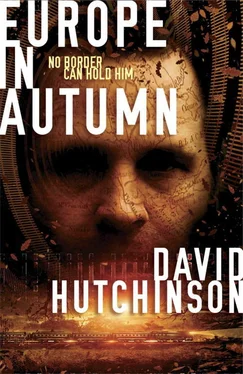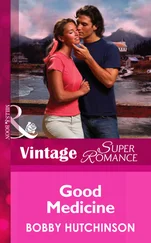By the time the venison was cooked, the coffee was ready. He put the dog’s bowl down on the floor and the evil creature slurped at it. He poured his own coffee from the jug into a cracked ceramic mug advertising Vienna’s Tiergarten – another Christmas gift from his son the idiot – and stood eating the meat from the frying pan. He dropped a few scraps on the floor to satisfy the dog.
“What day is it, bastard?” he asked as he slurped coffee. The dog, as usual, had no sensible answer, only thick wet chewing sounds as it breakfasted. “I think it’s a day to go into the village.”
At the word ‘village,’ the dog stopped chewing and raised its head. When he was young, Paweł had attended school with a boy named Stanisław. Stanisław had liked to amuse himself by trapping insects and pulling off their wings and legs. He kept his crippled victims, as long as their tiny lives persisted, in a little cardboard box, and liked to show them to the girls.
Later, Stanisław had graduated to small animals, trapping and mutilating dogs and cats. By then, he had abandoned all attempts to impress the girls. Later still, the girls themselves had become his subjects. He had killed fifteen before he was arrested. Paweł had seen his eyes at the trial, and occasionally he saw something of Stanisław in Halina’s eyes.
It amazed him that the dog recognised the word ‘village’ and showed such interest. He had never taken it to the village; he didn’t dare, in case it decided to start chewing on a child. He shook his head and threw a dirty plate in the dog’s direction. The dog ignored it and continued to stare at him.
“I can’t take you, you bastard,” Paweł told the dog angrily. “Stupid useless creature.”
Halina watched him a moment longer, then seemed to perform a slight shrug and went back to its coffee, as if it had completely forgotten he was there.
PAWEŁ FOUND THAT he had forgotten quite how long it was since he had last visited the village. He thought it might have been in the late spring or early summer. On the other hand, he thought it could have been even earlier.
Whatever. Going to the shed, he found that his bicycle was almost useless. Both tyres were flat and there was rust on almost every metal surface. He couldn’t remember the chain breaking, but there it was, hanging uselessly. He stood, hands in the pockets of his thick jacket, staring up at the machine hanging from the ceiling of the shed. He stood there quite a long time, trying and failing to remember when he had last used the bike. Clearly it was a while.
Never mind. He went back to the caretaker’s cottage and found a stout pair of hiking boots, only faintly ghosted with mildew, under a pile of clothes. He laced them up and put on a coat and slung a rucksack over one shoulder and set off down the path that led to the track that led to the road that led to the village.
The village had about seventy inhabitants. It boasted a bar, a shop, and a garage, all of them run by the same man, and a post office run by a wan, nervous woman who had either come here or been banished here from Warsaw twenty years before. Paweł always expected her to leave, so he had never bothered to learn her name, but year after year, there she was, patiently collecting his post and waiting for him to come into the village for it.
“And how are we today, Mr Pawluk?” she prattled as he examined the pile of envelopes, parcels and packages which had accumulated at the back of the post office since he last came into the village – and he was beginning to think it had been a very long time since he was here last.
“ We ?” he muttered. “ We ? I’m fine, I have no idea about you . Nowak been about?”
“I saw Mr Nowak not ten minutes before you arrived,” said the woman. “Going into the, er…” She nodded at the bar.
“Here, put this in a bag,” he told her, thrusting an armful of his post at her. “I’ll be back for it later.” And he thumped down the steps of the post office and across the road and into the bar.
Inside, Nowak was sitting at a table, looking at a bottle of Wyborowa and two glasses. “Heard you were about,” he said. “Drink?”
Paweł pulled up a chair and sat and watched Nowak fill the two glasses with vodka. They drained their glasses in silence, and Nowak refilled them.
“So,” he said, taking an envelope from his jacket pocket, “a writer.”
“A writer.” Paweł took the envelope, inspected its contents, removed the money and pocketed it.
“He’s booked the Lodge for six weeks,” Nowak went on. “Says he needs the privacy or something to finish his latest novel, fuck him.”
“Fuck him,” Pawl agreed, and they both drained their glasses again, and once again Nowak refilled them.
“He’s paying full price though,” Nowak said. “The whole Lodge, not just the ground floor.”
“When does he arrive?” Paweł was not a lazy man, but he could foresee some busy days ahead getting the place tidied up. It had been a while since he had done any cleaning at all in the Lodge.
“Friday.”
“What’s today? Monday?”
“Wednesday.”
“Fuck.” Paweł emptied his glass again.
“He says he doesn’t want any special treatment,” said Nowak. “Says he’ll cook for himself.” And the two men had a laugh about that because the last person who had said they could cook for themselves at the Lodge had almost burned the place down.
Paweł was looking at the rental documents from the envelope – Nowak’s business renting out the Lodge was far too ramshackle to include ereaders and tablets and palmtops. “Don’t recognise the name,” he said.
“Writers,” Nowak said. “Fuck ’em.”
“Fuck ’em,” Paweł agreed, and they drank again. Paweł stood up and fastened his coat. “Better get the place ready for him, then.”
Nowak poured himself another drink. “Better had.”
Outside, Paweł drew himself up straight and marched across the street to the post office, where he barked orders at the woman behind the counter until she handed over his bag of post. Then he headed back into the woods, weaving only very slightly.
THE TOURIST WAS very young. He had a beard, and a limp, and he affected the look of someone who had had a hard life, but Paweł, who had had a hard life, knew the difference. This tourist, this writer , was just a boy.
He arrived early in the morning, while Paweł was sitting in the privy. He heard the sound of boots crunching twigs and leaf-litter underfoot, and when he buttoned himself up and went outside there was the boy, dressed in jeans and a black padded ski-jacket, a big olive-green canvas kitbag slung over one shoulder, leaning on a walking cane and grinning.
“Hey,” said Paweł, walking towards him. “This is private property.”
“I know,” said the boy, smiling and holding out a hand to shake. “For the next few weeks it’s my private property.”
Paweł didn’t shake hands. He thought it was a habit for city people who didn’t trust each other not to be carrying weapons.
If this bothered the boy in the slightest he gave no sign. He kept smiling and stuck his hand back in his pocket and gestured with his cane at the lodge. “It’s in pretty good shape,” he commented.
“How did you hurt your leg?” Paweł asked.
The boy looked down at his leg, then at Paweł, and he grinned. “You know, you’re one of the very few people who’s ever asked me. Most folk assume I won’t want to talk about it. I had a ballooning accident.”
Paweł raised an eyebrow. “Ballooning.”
“Slight miscalculation in weight-to-lift ratios.” He leaned forward conspiratorially. “To be honest with you, I’m getting too old for all that stuff.”
Читать дальше







